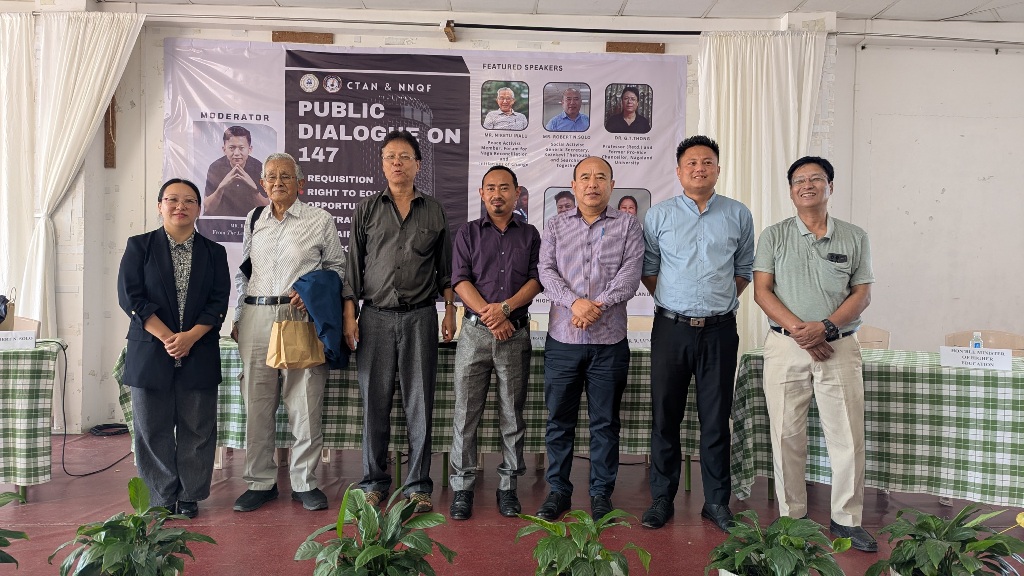Public dialogue on '147' calls for justice, transparency and systemic reform in Nagaland
Public dialogue in Kohima urges systemic reforms, accountability, and transparency in Nagaland’s recruitment and education system.
- KOHIMA — The
‘Public Dialogue on 147’ delved on critical issues plaguing Nagaland, including
governance, education, and corruption. It addressed not only the contentious
issue of regularising the 147 contractual posts but also called for working
towards a just society and transparent process of requisition.
- Organised by the Combined Technical Association of Nagaland
(CTAN) and the Nagaland NET Qualified Forum (NNQF) at Angami Women Organisation
conference hall, the dialogue represented the protestors’ latest response to
the Nagaland Cabinet’s decision to regularise 147 contractual posts without
following due recruitment procedures.
- The state government’s silence following the expiry of an
earlier requisition deadline further fuelled the call for accountability and
transparency.

Speakers and participants during the ‘Public Dialogue on
147’ in Kohima on Saturday.
- The venerable peace activist Niketu Iralu, a member of the
Forum for Naga Reconciliation, lauded CTAN and NNQF for initiating the dialogue
and maintained that protests like these—though full of frustration and
outrage—also reveal a deep yearning for justice and a better future.
- “Problems are not meant to divide us, but to shape us,”
Iralu said. He identified the core issue as the lack of adherence to “due
process” in governance and stressed that justice and fairness must become
unchallengeable norms in public administration. “A just society is one that
grows in trust and obedience to truth,” he added.
- Education system under the lens
- Former Nagaland University pro-vice chancellor, Prof. GT
Thong, spoke from the perspective of the National Education Policy (NEP) 2020.
He questioned whether government colleges in Nagaland, which serve around 30%
of the student population, are equipped to implement the policy given the
shortage of infrastructure and qualified faculty.
